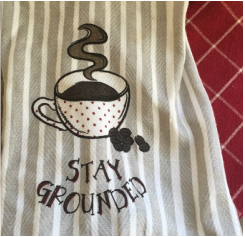
“I do not seek perfection. I simply seek to remember who and what I am everyday. I seek the people and places and practices that support the expanding of this awareness in my day, in my life, in my choices.” Oriah Mountain Dreamer
Over the past couple of years I have observed a seemingly growing portion of the female population experiencing over commitment in their lives. (To be clear, this is not exclusive to the female of our species, only that it has been observed more first hand in that sex by the writer. It is my hope, that this serves anyone who nods their head to any of this or thinks, “I have felt that!”, female or otherwise. This is for anyone who recognizes this and wants to do something about it for themselves and the world they live in.) The most interesting part of it is that the commitments are mostly external. Few, if any, are made to herself. There is a fundamental misalignment with the individual and their own personal path to joy of being or living in their spirit. The inauthentic gap we experience in our own lives drives us to cover up the emptiness with some kind of distraction or stimulation. (Gurucharan Singh Khalsa, KRI International Teacher Training Manual Level 2 – Vitality and Stress (Santa Cruz, NM: KRI 2008), 65.) Now, it may be said that this population has always been there, and that I started noticing it because I began to see and feel it in myself. What does it look like and feel like? Here is what I have felt, seen and come to understand as signs of this over commitment that takes one out of the dynamic balance so many of us are navigating toward:
Feeling so busy that there isn’t time for the things you know are “good” for you.
Doing everything else before allowing the possibility of doing what you love.
Feeling an ambiguous lack of ease or harmony.
Hoping that “catching up” on everything will make you feel at peace.
Feeling envious or judgmental toward others who seem to have/take time for themselves.
Good, old-fashioned anxiety.
Good, old-fashioned depression.
Hearing the running tape in your mind that everything is “great!” or “ok!” because you can’t pin down a specific reason to feel out of sorts.
Feeling like you must be the only one selfish or ungrateful enough to feel this way.
Feeling the need to apologize even when you’re not sure why you’re apologizing.
Fatigue
Insomnia
Addiction
It’s true that a lot of women live a life that is on the surface pretty great; decent health, a job, a family, friends. We live in an era where women have many more options than they used to, and there is a drive, internal and societal, to utilize ALL of those options now and to use them all well, to their fullest expression. No pressure. And still within all of that, there is this sense of something missing. There is a feeling of imbalance that is seeking its level. Often with the idea that something is wrong and needs to be fixed. That there is an action to be taken that will change it. That if one just does MORE. That there is something one must DO to feel better, to get better, to BE better. Often in tandem with that is the feeling that its out of one’s hands. That there’s nothing one can do about it, or that this is just life, and that’s how its supposed to be.
“Living with depleted energy for years without end can result in high-grade levels of chronic stress; drained nutrients… and sometimes depression that won’t go away. By the time we reach our forties and fifties, sometimes we are so accustomed to fatigue, low energy and exhaustion that our bodies simply don’t know any other way of being.” (Nora Isaacs Women in Overdrive (California: Seal Press 2006), 10.) It is that which makes this state of being so ambiguous, because it feels almost normal. The American Psychological Association notes that 70% of people realize they could use help, but only 7% seek it out. (Gurucharan Singh Khalsa, KRI International Teacher Training Manual Level 2 – Vitality and Stress (Santa Cruz, NM: KRI 2008), 35.) Yogi Bhajan, the master of Kundalini yoga, called this cold depression. Living with a constant low to moderate level of stress as your baseline. It has been my experience and observation that this all starts out quietly, and gets louder and more symptomatic.
In the Bhagavad Gita, Arjuna experiences a time where he is overcome with weakness in a moment where he needs to act. He is in duality about the circumstances of a battle where he has loyalty to both sides. Krishna steps in and reminds him to look into his own true nature and transform his consciousness instead of focusing on the external circumstances. Once this disconnect was healed, Arjuna was able to move with courage, integrity, and compassion in each action on the battlefield.
Herein lies that amazing irony of it all. It is by deeply relaxing into oneself that all of this duality starts to fall away. That it almost takes care of itself. All the potential for harmony already exists, it does not need to be made. It does not need anything to be fixed “first”. The other hilarity is that learning deep relaxation… is really hard work.
In western medicine, this can look like a million things. And it IS a million of those things. It is anxiety, lethargy, resentment, headaches, muscles aches, digestive upset, and so many other things. What we are talking about here is the overall source and at the same time overall effect from those million things that are diagnosed and treated. They are inextricable. It is said that when Native American medicine men talk to the sick, they usually ask three questions: When was the last time you sang? When was the last time you danced? When was the last time you told your story? That lack of each person's version of singing, dancing and storytelling is what we seek to address here.
More on this next time!

 RSS Feed
RSS Feed
